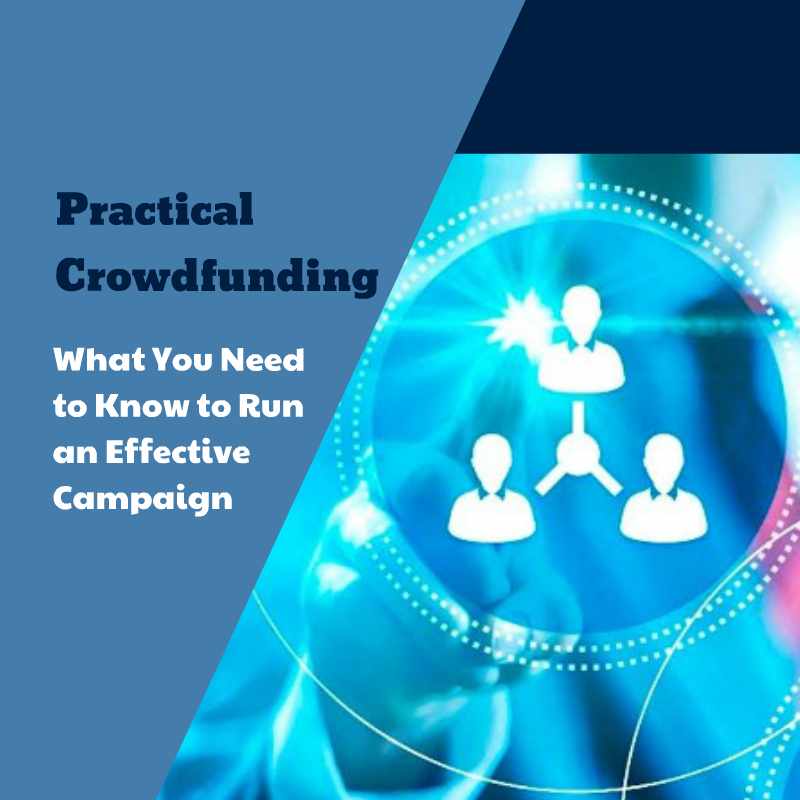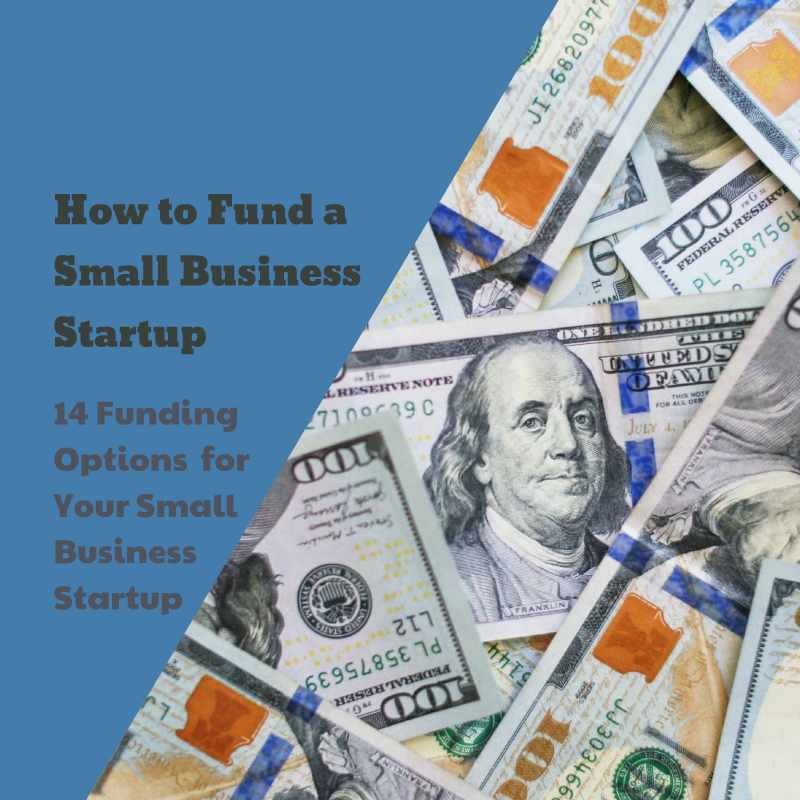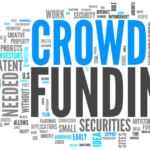There is a wide array of crowdfunding platforms, each with its unique spin on ways to raise funds. Some platforms support charitable or creative campaigns, others reward-based campaigns, while still others support equity-based campaigns or some combination. Moreover, some crowdfunding platforms allow only accredited investors to invest in campaigns, while others are open to all types of investors. Some crowdfunding platforms are designed for companies to raise funds, while others are for individuals looking for donations to help with family emergencies or personal needs.
To help make sense of all the crowdfunding platform options, I have subjected each platform to five criteria.
Projects – Some platforms are designed to help raise funds for the product development of tangible products. Some are designed just for creative projects developed by artists. Still, others are designed strictly to allow people to make donations to help an individual or family deal with personal needs.
Funding – Some platforms have an all-or-nothing funding model where campaign pledges must surpass a target amount or threshold before the campaign charges backers. Others simply share all funds raised with the company or individual, regardless of whether a goal is reached.
Backers – Some platforms cater only to institutional investors, generally considered accredited investors. Others are open to all types of investors.
Types – At their core, crowdfunding platforms support a combination of three types of campaigns: charitable or donation-based, reward-based campaigns, and equity-based campaigns.
Fees – Some platforms take a portion of the money raised as a success fee. Others use a subscription model where companies pay a monthly fee for a set of services offered.
The combination of offerings from the many crowdfunding platforms can be staggering, so it is always recommended that you do your research before choosing a crowdfunding platform for your campaign. Moreover, there are so many platforms out there changing daily that it is impossible to maintain a complete and comprehensive list of everyone. To make the task of listing crowdfunding platforms a bit more manageable, I’ll stick primarily to global or US-based platforms, ignoring the many regional platforms and limiting the list by unique niche platforms.
Popular Crowdfunding Platforms
The following list should help you make some sense of which platforms are best suited for your crowdfunding needs:
Kickstarter
- Projects: Focus on creative projects such as art, music, film, design, and technology. Examples include launching a new board game, producing an independent film, or developing a unique gadget.
- Funding: All-or-nothing model; projects must meet their funding goals to receive funds.
- Backers: Open to all types of investors globally.
- Types: Reward-based campaigns.
- Pros: Large user base, integrated marketing tools, extensive support for project creators.
- Cons: High competition, strict project approval process, some issues with customer support and project delivery.
- Fees: 5% platform fee, plus 3% + $0.20 per pledge for payment processing.
Indiegogo
- Projects: Broad range including creative works, entrepreneurial ventures, tech innovations, and community projects. Examples include developing innovative tech products, artistic endeavors, and social impact initiatives.
- Funding: Flexible funding (keep funds raised even if the goal isn’t met) or fixed funding (all-or-nothing).
- Backers: Open to all types of investors.
- Types: Reward-based campaigns, equity crowdfunding (through partnerships).
- Pros: Flexible funding options, in-demand tech products, international reach.
- Cons: Less brand recognition compared to Kickstarter, higher fees for certain services.
- Fees: 5% platform fee, plus 2.9% + $0.30 per transaction.
GoFundMe
- Projects: Personal causes, medical expenses, charity. Examples include raising funds for medical treatments, emergency expenses, and community projects.
- Funding: Keep-what-you-raise model; no requirement to meet the goal.
- Backers: Open to all types of donors.
- Types: Charitable or donation-based campaigns.
- Pros: No platform fee, ideal for personal and emergency fundraisers.
- Cons: Not suitable for product or business funding, reliant on personal networks.
- Fees: No platform fee; 2.9% + $0.30 per transaction.
GoFundMe acquired the following crowdfunding platforms in recent years:
– CrowdRise (Acquired in 2017) was designed for nonprofits.
– YouCaring (Acquired in 2018) was designed for charitable and personal causes with specific categories for medical, funeral, tuition, adoption, faith-based, pet expenses, and community causes.
– GiveForward (Acquired in 2018) was a donation-based platform with specific categories for medical bills, veterinarian bills, and funeral expenses.
– Classy (Acquired in 2022) Classy allowed you to create donation websites, fundraising events and ticketing, virtual events, and auctions. It supported peer-to-peer, recurring giving, and even international fundraising. It also offers backend donation management, payment processing, and integration.
Mightycause
- Projects: Nonprofit fundraising, personal causes. Examples include charity campaigns for nonprofits and peer-to-peer fundraising for personal emergencies.
- Funding: Keep-what-you-raise model.
- Backers: Open to all types of donors.
- Types: Charitable or donation-based campaigns.
- Pros: Robust tools for nonprofits, customizable campaigns.
- Cons: Monthly fees can be high, not suitable for commercial projects.
- Fees: $79 to $119 per month, plus 2.2% + $0.29 for payment processing.
Patreon
- Projects: Ongoing support for creators (artists, podcasters, writers). Examples include monthly support for a podcast series, an online comic strip, or a music album.
- Funding: Subscription model; creators receive monthly payments from patrons.
- Backers: Open to all types of supporters.
- Types: Membership-based campaigns.
- Pros: Reliable monthly income, direct relationship with patrons.
- Cons: Dependent on ongoing patron engagement, high competition among creators.
- Fees: 5% (Digital product sales only) or 8% (Pro Plan) to 12% (Premium Plan) of monthly income, plus payment processing fees.
StartEngine
- Projects: Equity crowdfunding for startups. Examples include raising capital for a tech startup or expanding a growing business.
- Funding: Keep-what-you-raise model.
- Backers: Unlike many equity-based funding types, Startengin is open to both non-accredited and accredited investors. The minimum investment by investors spans $100 to $1,000.
- Types: Equity-based campaigns.
- Pros: Large network of investors, extensive support for legal and financial requirements.
- Cons: Complex application process, high-risk investments.
- Fees: The issuer is required to pay a fee consisting of a 5.5-13% commission based on the dollar amount of securities sold in the Offering and paid upon disbursement of funds from escrow at the time of closing. Investors are also required to pay a securities fee consisting of a 0-3.5% fee based on the dollar amount of securities purchased in each investment.
StartEngine acquired SeedInvest the 2023. SeedInvest was suited for companies that have a Minimally Viable Product (MVP) already developed, some traction in the market, and are incorporated in the U.S. Only 1% of applicants are approved.
iFundWomen
- Projects: Female-led businesses and entrepreneurs. Examples include launching a women-led tech startup or expanding a women-focused service business.
- Funding: Flexible funding model.
- Backers: Open to all types of investors.
- Types: Reward-based and donation-based campaigns.
- Pros: Targeted support for women, coaching, and networking opportunities.
- Cons: Niche market focus, may not suit all types of projects.
- Fees: 5% platform fee, plus payment processing fees.
Fundable
- Projects: Startups and small businesses. Examples include raising capital for a new restaurant or a tech product launch.
- Funding: All-or-nothing or flexible funding.
- Backers: Accredited investors.
- Types: Reward-based and equity-based campaigns. NOTE: Transactions do not go through Fundable nor are they facilitated by Fundable. For this reason, equity campaigns are not “all or nothing” fundraisers on Fundable. Ultimately, a company’s agreements with the investor and SEC filings are what determine how much can be raised and how much can be oversubscribed.
- Pros: Support for both reward and equity campaigns, access to accredited investors.
- Cons: Monthly fees can be high, limited to accredited investors.
- Fees: Fundable does not work on a commission based on the amount of money raised for equity-based fundraising. Their fees start at $179 per month to create and manage the fundraiser. For reward-based campaigns, each contribution is charged an additional payment processing fee (roughly 3.5%).
Wefunder
- Projects: WeFunder accepts nearly any type of company, be it a brick-and-mortar restaurant or a high-tech software startup. WeFunder has a FAQ page where you can learn more.
- Funding: WeFunder uses Special Purpose Vehicles (SPV) which are separate LLCs set up for the sole purpose of investing in your company and aggregates all investors into a single cap table. SPVs use a lead investor with whom you deal in corporate actions. All other investors have no voting rights, making management simple.
- Backers: Anyone can be an investor but Accredited Investors will have more options.
- Types: Equity-based and Debt-based campaigns.
- Pros: Broad investor base, support for a wide range of businesses.
- Cons: High competition, extensive vetting process.
- Fees: WeFunder charges different fees for Reg CF and Reg A+ campaigns. For Reg CF, it’s 7.9% of the total fundraiser if successful, up to $100,000 plus $7,900 upon close, and for Reg A+, they charge a flat fee of $395k (this is 7.9% for a $5m raise). WeFunder also charges investors a payment processing fee (roughly 3.5%) for credit card payments.
Crowd Supply
- Projects: Hardware and physical products. Examples include crowdfunding for a new electronic gadget or a DIY hardware kit.
- Funding: Keep-what-you-raise model.
- Backers: Open to all types of backers.
- Types: Reward-based campaigns.
- Pros: Specialized support for hardware projects and fulfillment services.
- Cons: Niche focus, high competition within the category.
- Fees: Crowd Supply’s fee structure is straightforward: Credit card processing fee: 2.9% Crowdfunding fee: depending on the specific agreement, typically 12% of the total pledged during your campaign.
Fundly
- Projects: Personal causes and nonprofit fundraising. Examples include medical expenses, education funds, and nonprofit initiatives.
- Funding: Keep-what-you-raise model.
- Backers: Open to all types of donors.
- Types: Charitable or donation-based campaigns.
- Pros: Easy campaign setup, strong social media integration.
- Cons: High platform fees, limited reach without strong personal network.
- Fees: 4.9% platform fee, plus 2.9% + $0.30 per transaction.
CauseVox
- Projects: Nonprofit and social good projects. Examples include charity drives, community projects, and disaster relief.
- Funding: Keep-what-you-raise model.
- Backers: Open to all types of donors.
- Types: Charitable or donation-based campaigns.
- Pros: Customizable campaigns and robust donor management tools.
- Cons: Monthly fees can be high and limited to nonprofit projects.
- Fees: CauseVox does not work on a commission based on the amount of money raised. It offers a monthly subscription model based on features. Pricing ranges from $0 to $275 per month and includes an FAQ on the same page.
FundRazr
- Projects: Personal causes, nonprofits, and business projects. Examples include medical bills, nonprofit campaigns, and startup funding.
- Funding: Keep-what-you-raise model.
- Backers: Open to all types of donors.
- Types: Charitable, reward-based, and business campaigns.
- Pros: Versatile platform, easy to use.
- Cons: Payment processing fees can be high, less brand recognition.
- Fees: FundRazr offers three pricing models that range from free to 5% plus Stripe or PayPal payment processing fees (roughly 3% for domestic transactions).
EquityNet
- Projects: Startups and growing businesses. Examples include raising equity for a tech startup or expanding a manufacturing business.
- Funding: Equity crowdfunding.
- Backers: Accredited investors.
- Types: Equity-based campaigns.
- Pros: Access to accredited investors and comprehensive support.
- Cons: Limited to accredited investors, complex application process.
- Fees: EquityNet uses a flat-fee model vs. commission. EquityNet offers three subscription models ranging from “Starter” to “Full Service.” The “Starter” subscription is free, while the “Premium DIY” model costs $299 per month, and the “Full Service” option costs $2,990 per month.
Republic.co
- Projects: Startups, real estate, and crypto projects. Examples include early-stage tech startups, real estate developments, and blockchain initiatives.
- Funding: Equity crowdfunding.
- Backers: Accredited and nonaccredited investors.
- Types: Equity-based campaigns.
- Pros: Diverse investment options and strong support for startups.
- Cons: High competition and regulatory requirements.
- Fees: Republic takes a success-based commission at the end of a campaign: 7% of the money raised in cash and 2% (Crowd SAFE)of the securities issued.
MicroVentures
- Projects: MicroVentures is best suited for early-stage emerging companies looking for seed money. The platform is ideal for startups and founders looking to raise between $150,000 and $1 million which is typically less than that of traditional venture capital. They support technology, consumer products and services, healthcare, media and entertainment, and telecommunications projects. They accept less than 0.5% of companies who apply for listing on the platform.
- Funding: MicroVentures is the only major equity crowdfunding site that is a broker-dealer registered by the Financial Industry Regulatory Authority (FINRA). MicroVentures may legally sell shares of companies on their own. Competing platforms require a third-party middleman to sell shares.
- Backers: Backers can be sophisticated non-accredited investors, accredited investors, and institutional investors who want to invest in startups or purchase shares of private investment funds.
- Types: Equity-based campaigns.
- Pros: Access to high-growth potential startups, strong vetting process.
- Cons: Limited to accredited investors, high-risk investments.
- Fees: MicroVentures fees vary depending on the type of raise, how much you want to raise, and how you decide to promote your raise; there are upfront fees, optional additional fees, and closing fees, including a 5% commission, 2% securities raised and an escrow fee. They have a Fees FAQ page.
CrowdStreet
- Projects: Real estate investments. Examples include commercial real estate developments, residential projects, and mixed-use properties.
- Funding: Equity crowdfunding.
- Backers: Accredited investors.
- Types: Equity-based campaigns.
- Pros: Focused on commercial real estate, significant investment opportunities.
- Cons: Only for accredited investors, complex investment process.
- Fees: Varies based on the project and investment size. They have an FAQ page.
Other Real Estate Specialized Crowdfunding Platforms
Here are six real estate crowdfunding platforms, each offering unique investment opportunities:
- Fundrise – Accessible to both accredited and non-accredited investors, Fundrise allows individuals to invest in a variety of real estate projects, including commercial and residential properties, with a very low minimum investment requirement.
- RealtyMogul – This platform provides opportunities to invest in diversified real estate portfolios that include both commercial and residential properties. It is designed to be accessible for both accredited and non-accredited investors..
- EquityMultiple – Focused on accredited investors, EquityMultiple offers a range of investment opportunities, including equity, preferred equity, and syndicated debt in real estate projects.
- AcreTrader – Specializes in farmland investments, AcreTrader is available only to accredited investors and allows them to earn returns through land appreciation and annual rent payments from farmers.
- DiversyFund – Aimed at democratizing real estate investing, DiversyFund offers investment opportunities in commercial real estate to all investors, not just those who are accredited.
- PeerStreet – Specializes in debt investment loans for real estate, targeting accredited investors. PeerStreet allows participation in short-term residential and commercial real estate investments with competitive fees and an automated investing feature for filtering investment opportunities.
Conclusion
In summary, the crowdfunding landscape offers a diverse array of platforms tailored to various types of projects, funding models, and investor requirements. Platforms like Kickstarter and Indiegogo cater primarily to creative and entrepreneurial ventures with flexible funding options, while GoFundMe and Mightycause focus on personal and nonprofit fundraising needs. For ongoing creator support, Patreon provides a subscription-based model, enabling artists and content creators to maintain a steady income.
Equity crowdfunding platforms such as StartEngine, Wefunder, Crowdcube, and SeedInvest offer opportunities for startups to raise capital from both accredited and nonaccredited investors, with each platform presenting unique benefits and challenges. For hardware and physical products, Crowd Supply offers specialized support, while Fundly and CauseVox provide versatile options for personal and nonprofit campaigns.
Understanding the specific features, advantages, and fees associated with each platform is crucial for selecting the most suitable crowdfunding option. By leveraging the strengths of these platforms, creators, entrepreneurs, and nonprofits can effectively raise the funds needed to bring their projects and initiatives to life.
Which crowdfunding platform is right for your next fundraising campaign?
For more information on crowdfunding see our Crowdfunding Navigator Advice Page for a complete collection of crowdfunding posts and resources.













